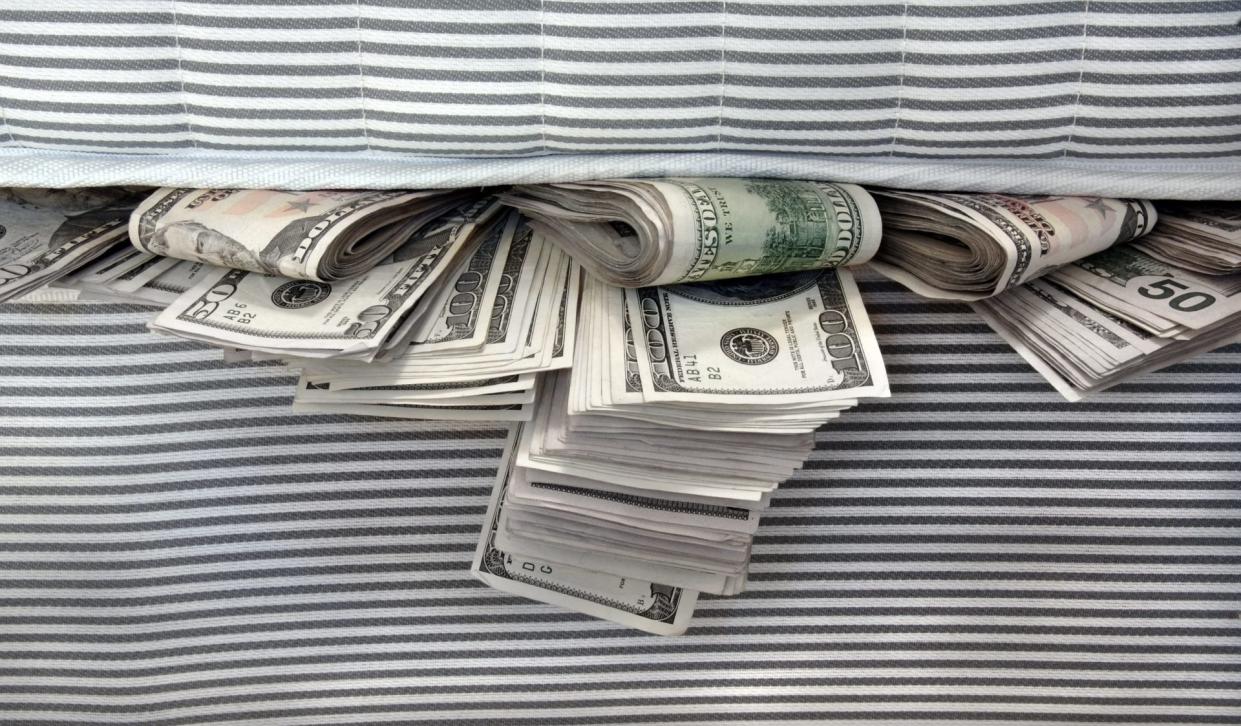What Does It Mean To Be Unbanked?

Being unbanked means that no one in the household has a checking or savings account at a financial institution, such as bank or credit union. Believe it or not, being unbanked isn’t exactly rare either. An estimated 7.1 million U.S. households were classified as unbanked in 2019, according to the Federal Deposit Insurance Corporation’s most recent survey of Household Use of Banking and Financial Services.
Learn More: What Do Banks Do With Your Money After You Deposit It?
See: 12 Essential Money Tips for Every Phase of Your Financial Life
But why would someone choose to be unbanked, and what are the pros and cons? Here’s what you need to know.
Why Might Someone Choose To Be Unbanked?
Dana Sitar, owner and executive editor at Healthy Rich, said that most people who are unbanked in the U.S. aren’t in the position by choice.
“They might not have access to a bank account because of previous banking history that makes them ineligible, or they might not have bank branches in their community or reliable internet access to open an online account,” she said.
Being disadvantaged isn’t the only reason people end up unbanked, though. Sitar pointed out that some individuals might also choose to be unbanked as a way of opting out of the U.S. financial system.
Helpful: 50 Easy Things You Should Do To Save Money
“It can be difficult to find an institution that aligns with your ethics, especially without extensive research and vetting,” she said. “Someone might prefer to keep their money out of institutions that would use it to support initiatives that go against their values, like supporting companies that are harmful to the environment or politicians with discriminatory stances on social issues.”
Sitar also said that some people might choose to be unbanked to avoid debt collection.
“Companies or the government could intercept payments into a bank account if you’ve lost a lawsuit with creditors or owe child or spousal support,” she said. “Keeping your money out of the banks makes it harder for debtors to reach.”
What Are the Pros of Being Unbanked?
“One of the big headaches that the unbanked can avoid is the fees associated with a bank account,” said Ann Martin, director of operations at CreditDonkey. “Overdraft fees can be especially painful for those with limited financial resources since they tend to hit when people don’t have money and can often lead to a cascade of new fees.”
Find Out: How To Calculate Your Debt-to-Income Ratio
What Are the Cons of Being Unbanked?
“Being unbanked makes it difficult for you to participate in a lot of common activities that rely on bank account information, down to something as simple as getting paid at work,” Sitar said. “Many employers solely use direct deposit and require bank account information to give you a paycheck. You’ll also be excluded from many wealth-building activities like earning interest or cashback rewards, taking out loans and investing.”
Find Out: What Is Adjusted Gross Income?
The Takeaway
In most cases, the cons outweigh the pros,” Sitar said. “If you have a choice, choose to have a bank account, and take steps to alleviate concerns. If you don’t trust big banks, open an account with a community bank or credit union, and talk with a representative there to ask questions about the institution’s activities and ethics. If you’re struggling with debt collection, make a debt-payoff plan or work with a nonprofit debt counselor to organize your finances and alleviate the strain of what you owe. Usually, making even small payments regularly can help you avoid wage garnishment.”
More From GOBankingRates:
This article originally appeared on GOBankingRates.com: What Does It Mean To Be Unbanked?

